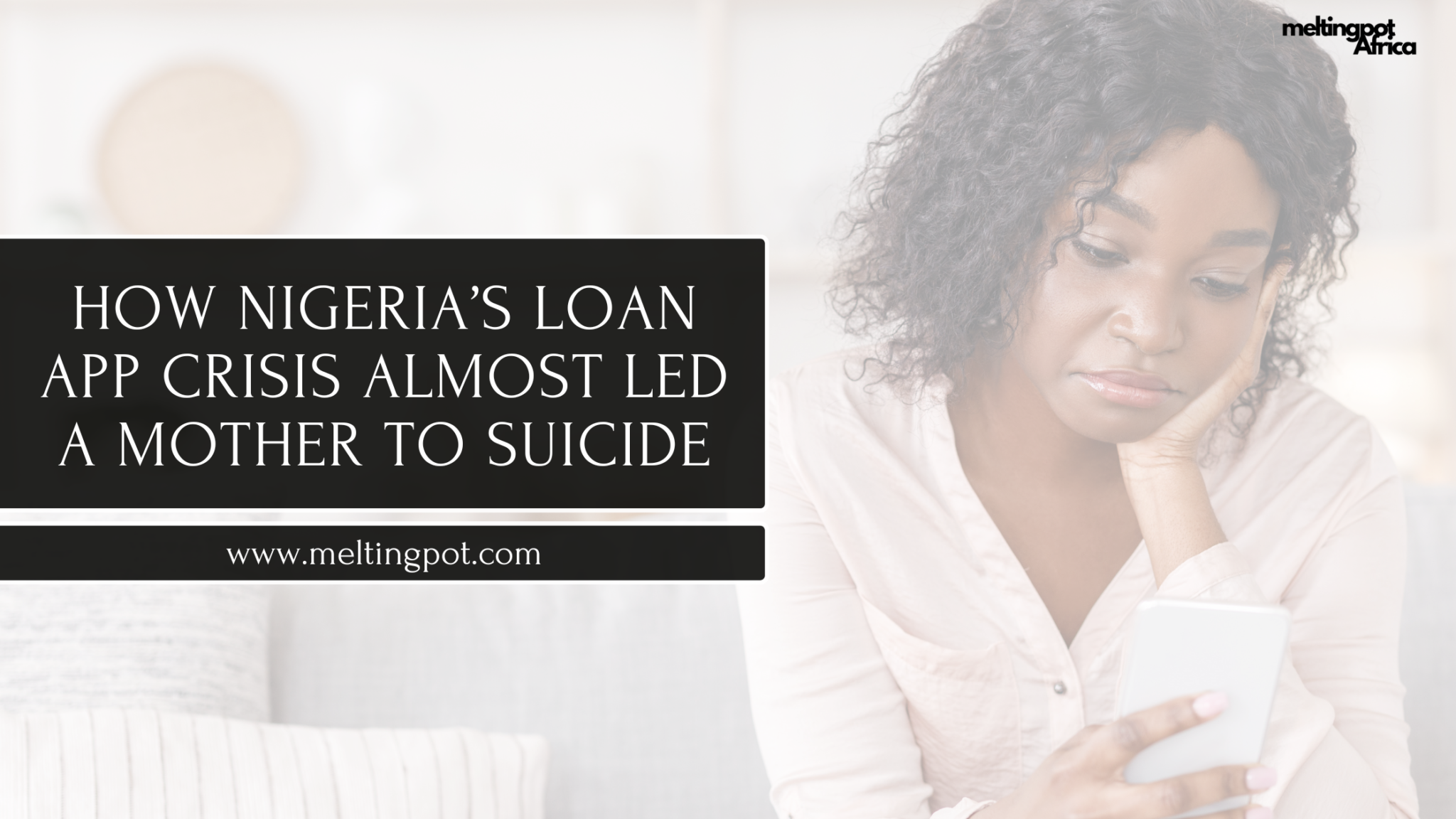Jumoke’s canteen was once a source of comfort and sustenance for her family and loyal customers. However, her story took a dark turn when the rising costs of food supplies pushed her to seek financial help from what seemed like a convenient solution – digital loan apps.
It all began when Jumoke took a simple loan of 18,000 Naira from Sokoloan, an online lending platform. Little did she know that this decision would lead her into a financial nightmare she wasn’t prepared for. Struggling to repay the initial loan, she quickly found herself trapped in a cycle of borrowing from one loan app to pay off another.
Desperation led her to FairMoney, where she borrowed additional funds to settle her debt with Sokoloan. Unfortunately, the repayment terms became overwhelming, and her financial situation worsened. Desperate for more funds, Jumoke downloaded a Loan Hub app, which gave her access to multiple lending platforms. From there, she began borrowing from app after app in an attempt to keep up with her growing debts.
Her debt skyrocketed to a staggering 926,385 Naira, more than 51 times her original loan. The consequences were devastating. Loan apps began harassing Jumoke, sending defamatory messages to her contacts, calling her a fraudster, and even printing and posting flyers with her picture, publicly shaming her as a fraud.
The weight of the debt and the relentless harassment drove Jumoke to attempt to take her own life. It was then that her children realized that they needed intervention as they reported to Meltingpot Africa.
Jumoke’s unpleasant experience is not unique, we were able to gather different stories from Nigerians who had experienced hell from loan apps. These loan apps promise of easy credit has led many into a debt trap with devastating consequences.
The Increase of Digital Loans in Nigeria
At first, the increase in digital loan apps in Nigeria looked like a solution until it became a menace. These platforms offered quick, collateral-free loans to individuals, leveraging the economic hardship Nigerians face. Mr. Matthew told MeltingPot that the interest rate they offered during the advert was different from what he saw on the app. He requested the money urgently so he went ahead to get the loan only to start receiving threat messages just a day after he was supposed to pay.
Lola said she had only tried it out to see, but she did not accept the loan offer only for the money to be sent to her bank account. She asked them to take back the money immediately, only for them to say she would have to pay with the interest rate.
Many lending platforms operate with exorbitant interest rates, short repayment periods, and aggressive recovery tactics. The former governor of the Central Bank of Nigeria, Godwin Emefiele, warned citizens about the risks associated with these unofficial lenders, emphasizing the dangers of borrowing from unrecognized institutions.
What Customers Need To Know About Loan Apps
The Federal Government, through the Federal Competition and Consumer Protection Commission (FCCPC), has taken steps to regulate loan apps. As of 2023, 173 digital lending applications have been approved to operate in Nigeria, with 119 receiving full approvals and 54 receiving conditional approvals.
This regulatory move aims to protect citizens from the deceptive practices of unlicensed lenders. However, despite these efforts, many Nigerians continue to fall victim to loan sharks, both licensed and unlicensed.
The practices of many loan apps raise significant legal and ethical concerns. The Nigeria Data Protection Act provides rights to individuals regarding their personal data. However, many loan apps deliberately violate these rights, accessing and misusing borrowers’ personal information.
Dr. Vincent Olatunji, the National Commissioner of the Nigeria Data Protection Commission (NDPC), has confirmed that many digital lenders are under investigation for data protection breaches.
Wrong Acts of These Loan Apps The Tactics of Predatory Lenders
Predatory lenders employ various tactics to pressure borrowers into repayment:
- Harassment: Sending threatening messages to borrowers and their contacts.
- Defamation: Sending defamatory messages to borrowers’ contact list. Jumoke was termed a fraudster in the message sent to her contact list. She is not the only case here.
- Public Shaming: Making posters with borrowers’ pictures, calling them frauds.
- Data misuse: Accessing borrowers’ phone data without proper consent.
- Exorbitant Interest Rates: Charging interest rates well above legal limits.
What to Do When Threatened by Loan Apps
If you find yourself in a situation similar to Jumoke’s, here are some steps you can take:
- Stay Calm: Don’t let their provocations cause you to react impulsively.
- Report to Authorities: File complaints with the FCCPC and look for legal advice (you can sue them for defamation).
- Document Everything: Keep records of all communications and threats as this will serve as evidence if you decide to sue them..
- Know Your Rights: Familiarize yourself with the Nigeria Data Protection Act.
- Negotiate: Try to work out a reasonable repayment plan with the lender.
- Protect Your Privacy: It is important to remove the different access the app has on your phone especially access to your contact and messages.
Disclaimer: This is a true story based on real events. The names have been changed to protect the privacy and identity of the individuals involved.

